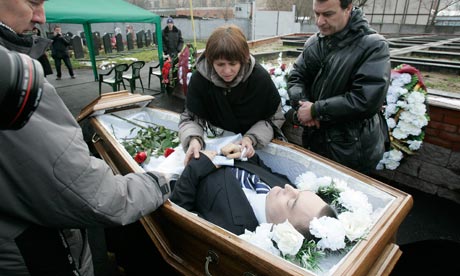By Terance Walsh
Impunity Watch Reporter, Europe
WARSAW, Poland — Polish prosecutors have filed charges against Poland’s former head of intelligence, Zbigniew Siemiatkowski, for his role in CIA torture of al Qaeda suspects on Polish soil. Prime Minister David Tuck is supporting the ongoing investigation and prosecution and has promised the truth.
The prosecutors charged Siemiatkowski with acting beyond the scope of his powers and violating international law for “unlawful depravation of liberty” and “corporal punishment.”
The investigation over torture in Poland began in 2008. Although Prime Minister Tusk supports the investigation, he has called for great discretion to assist in finding the truth. In a news conference Tusk said, “I did not came up with those charges and, if I were in the prosecutors’ shoes, I would not come up with such charges. But maybe I don’t have enough information.”
He added that the investigation “must rise to the highest standards of concern for state interest” and exercise the “utmost discretion.”
Despite Tuck’s skepticism, he remains confident that the investigation is a positive endeavor. “Poland will never again be a country where politicians, even if they are working hand-in-hand with the world’s most powerful country, can make under-the-table deals.”
A 2006 report from the Council of Europe accused 14 member states of participating in over 1,000 CIA flights across European territory.
Since 2007 the Council of Europe has expressed concern over allegation that al Qaeda suspects were being detained in secret prisons in Poland, Romania, and Lithuania. All three countries have denied the existence of any such prisons.
Additionally, former U.S. CIA officials have stated that the U.S. used secret prisons in Poland, Romania, and Lithuania to detain al Qaeda suspects.
Polish campaigners have found evidence of the secret prisons after compiling records of CIA planes that landed in Szymany, a Polish military base, in 2002 and 2003. One of the planes is said to have been carrying Kalid Sheikh Mohammed, the self-identified 9/11 mastermind who now faces a United States military tribunal in Guantanamo Bay. Mohammed himself says he was detained in Poland for a period.
According to the campaigners the secret prison was located in Kiejkuty.
Terror suspect Abu Zubaydah also claims that he was tortured in CIA prisons in several countries, including Poland. Polish officials have given Zubaydah “victim” status over the course of the investigation.
Human rights groups have applauded the initiative Poland has taken in prosecuting Siemiatkowski. “Poland deserves credit for this step, as the first European state to begin to deal with CIA torture on its own soil,” said Reprieve, a London based group. Reprieve also encouranged Romania and Lithuania to follow Poland’s example.
“Every state that has signed the (United Nations’) Convention Against Torture has an obligation not just to prevent torture but to hold accountable officials who authorize or facilitate it,” said Jameel Jaffer of the American Civil Liberties Union.
“I suppose it may be true that the Polish secret service was making a base available and then was not really engaged in what was going on there,” said Adam Bodnar of the Helsinki Committee for Human Rights. “But for such an operation to go ahead smoothly various units must coordinate their actions and have approval from politicians at the highest level. Any intelligence head would not make such a decision alone,”
In addition to the UN regulations, Poland has provisions in its constitution that ban torture and imprisonment without consent of the courts. Politicians and officials who violate this provision are subject to prosecution in the courts.
Poland has been one of the United States’ staunchest allies throughout the course of the “War on Terror.” It has taken part in American missions in both Iraq and Afghanistan.
The U.S. does not deny that it has flown prisoners to stations all over the world but it denies the use of torture in those prisons.
There also remain questions about how much Leszek Miller, the Polish Prime Minister in at the time the alleged detentions occurred, knew about the secret prisons. There is, however, evidence that Miller was aware of the prisons and could face charges for allowing the prisons to operate on Polish soil.
The Polish prosecutor’s office has declined any comment on the matter.
For more information please see:
Adelaide — Light Shines On CIA “Black Site” — 30 March 2012
Huffington Post — PM: Poland Is “Victim” Of US Leaks On CIA Prison — 30 March 2012
BBC — Polish PM Promises Truth On CIA Rendition Of Prisoners — 29 March 2012
Reuters — Polish PM Urges “Discretion” Around CIA Prison Probe — 29 March 2012
Reuters — Human Rights Groups Welcome Reports On CIA Prisons — 28 March 2012
PolskieRadio — Former Polish Intelligence Chief Charged In CIA “Black Sites” Case — 27 March 2012



